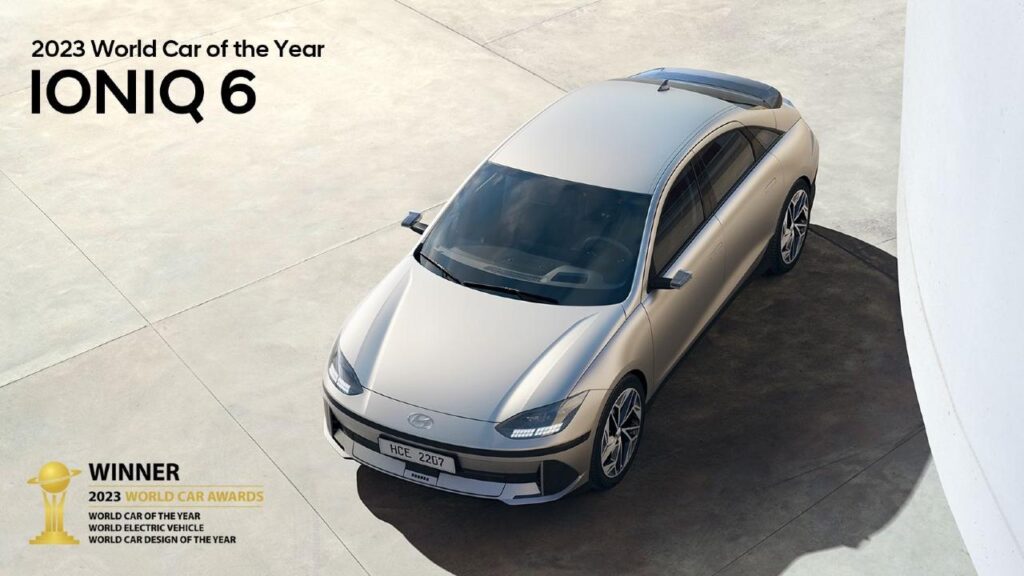In oder to standardize a method to test the charging speeds of popular electric cars, Edmunds conducted an independent real-world test.
In the rapidly evolving landscape of electric vehicles, the need for speed isn’t just about the thrill of acceleration on the road. It’s also about how quickly an EV can recharge at public fast-charging stations. The faster the charging speed, the sooner you can hit the road again. This ensures that your journey remains as seamless as possible.
Edmunds is a trusted name in automotive testing and reviews. It recently conducted practical tests to identify the fastest charging EV in real-world conditions. These shed light on a crucial aspect that often determines the practicality and convenience of electric vehicles.
You might also like: How Inductive / Wireless Charging Can Transform The Future Of EVs?

The Confusion in Charging Rates: Why Edmunds Stepped In
The Diverse Language of Automakers
One of the challenges faced by potential EV buyers is the diverse language used by automakers to express charging speeds. A quick visit to different automaker websites reveals a maze of claims. While one boasts a charging time from 10% to 80% in 35 minutes, another emphasizes adding 100 miles of range in just 20 minutes. These varied metrics make it nearly impossible for consumers to compare and understand which vehicles truly offer the fastest charging EV experience.
Standardizing Charging Information
Recognizing the confusion in the marketplace, Edmunds devised an independent and standardized test. Edmunds created a comprehensive evaluation by collaborating with the EV-testing specialist company P3 and combining their expertise with real-world testing data. The result is an easily comparable measurement expressed as miles per charging hour. It offers clarity in an otherwise convoluted landscape.
Miles Per Charging Hour: A Game-Changing Metric
The innovative approach taken by Edmunds involves measuring the miles gained per charging hour. A higher figure indicates that the vehicle requires less time for charging. This ensures that consumers can spend more time on the road and less time waiting. This metric combines the efficiency of the EV in electricity consumption per mile with the actual charging time. As a result, it provides a holistic view of the vehicle’s charging capabilities.
You might also like: Hyundai IONIQ 6 vs Kia EV6 – Specs, Price Comparison
The Top Performer: Hyundai Ioniq 6
After meticulous testing, the Hyundai Ioniq 6 emerged as the top performer in Edmunds’ evaluation. Under ideal conditions and using an appropriately powered charging station, this model showcased a remarkable potential of gaining 868 miles per charging hour. The achievement of the Hyundai Ioniq 6 in real-world conditions demonstrates its prowess as the fastest charging EV, setting a new standard for efficiency and speed.
Impressive Contenders: Tesla, Porsche, Kia, and Mercedes-Benz
Notably, several other EVs demonstrated impressive charging speeds of over 500 miles per hour. The Hyundai Ioniq 5 SUV, Kia’s EV6 and EV9 SUVs, Porsche’s Taycan sport sedan, and the Tesla Model 3 and Model Y all secured their positions as leaders in the fast-charging realm. Mercedes-Benz’s EQS sedan also stood out for its exceptional charging capabilities.
The Laggard: Chevrolet Bolt EUV
However, not all EVs fared equally well. The Chevrolet Bolt EUV lagged behind in Edmunds’ testing, with a potential charging speed of just 172 miles per charging hour. Despite its overall efficiency, the slower charging power of the Bolt EUV places it as a less-than-ideal choice for long-distance driving enthusiasts.
| Model | Miles Per Charging Hour (mi/hr) |
| Hyundai Ioniq 6 Limited RWD | 868 |
| Kia EV6 Wind RWD | 769 |
| Hyundai Ioniq 6 Limited AWD | 764 |
| Porsche Taycan 4S | 690 |
| Kia EV6 GT Line | 678 |
| Hyundai Ioniq 5 Dual-Motor | 673 |
| Mercedes-Benz EQS 450+ | 593 |
| Genesis Electrified G80 | 588 |
| Porsche Taycan GTS | 584 |
| Tesla Model 3 Long Range | 569 |
You might also like: Mercedes, BMW Exceed EPA Range in Real-World Test, Tesla Falls Short
Learn Electric Cars Says
Edmunds’ commitment to providing consumers with reliable and standardized information about EV charging speeds is a significant step forward in enhancing transparency in the electric vehicle market. The quest for the fastest charging EV is not merely about acceleration but about empowering consumers with the knowledge they need to make informed decisions.
As the industry continues to evolve, Edmunds’ real-world tests serve as a beacon, guiding consumers through the fast lane of electric mobility. The Hyundai Ioniq 6 and its fellow speedsters are leading the charge. This is setting the stage for a future where fast charging is not just a capability but a standard expectation. Embrace the speed, and let the journey unfold at the pace of innovation.


Pingback: New EV Battery From Zeekr To Offer 500 kW DC Fast Charging
Pingback: มรกตโคลัมเบีย
Pingback: ใบอนุญาตให้บริการของ Habanero Systems
Pingback: www.darknetmatkerswiki.com
Pingback: dultogel 4d
Pingback: 8 carat diamond price
Pingback: หวยลาว หวยยอดฮิตจากประเทศเพื่อนบ้าน
Pingback: 入金不要ボーナス
Pingback: pgslot168
Pingback: dumbbell sale Hempstead town NY
Pingback: Aviation Tire
Pingback: รับติดตั้งระบบระบายอากาศ
Pingback: เป่าฟูหลิง
Pingback: แทงบอลออนไลน์ 888
Pingback: EndoliftX
Pingback: รถพยาบาล
Pingback: ติดต่อโรงงานจีน
Pingback: รับขัดพื้นหินอ่อน
Pingback: pg168
Pingback: Gates of Olympus
Pingback: เว็บตรงฝากถอนง่าย
Pingback: th39
Pingback: รับสร้างโกดัง
Pingback: เน็ตบ้าน ais
Pingback: Buy Villa Phuket
Pingback: ครูเกอร์
Pingback: ufa118
Pingback: vg98
Pingback: รับผลิตของพรีเมี่ยม
Pingback: เด็กเอ็น
Pingback: jet30casino.buzz
Pingback: clothing manufacturer
Pingback: รีวิว LSM99
Pingback: SAGAME350